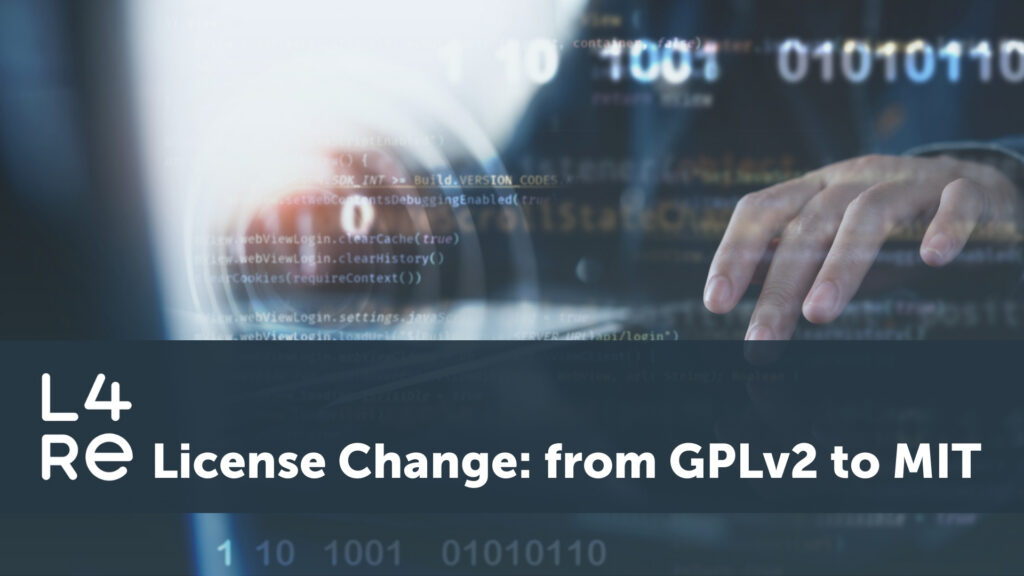From September 15, 2025, we are publishing the open-source L4Re Operating System Framework under the MIT license – offering more flexibility for both private and commercial developers.
With the strategic move from the strict copyleft GPLv2 towards the more permissive MIT license, we keep our software open for the widest range of use cases — whether in commercial products or purely open projects.
The simple and open MIT license, created in the 1980s at the Massachusetts Institute of Technology (MIT), is an ideal choice for companies – from startups to global enterprises – to build proprietary solutions on top of open-source technology. On GitHub, MIT is the most popular software license, used by projects like Lua, Node.js, and jQuery.
Thanks to MIT’s high compatibility and few restrictions, you can freely use, copy, modify, merge publish, distribute, sublicense and sell copies of the L4Re Operating System Framework – but without the constrictions of the strict copyleft GPLv2 license, you just have to cite the MIT copyright notice. There is no obligation to disclose your own modifications.
Most importantly, MIT allows you to reuse the licensed software within proprietary software. This makes it easier to use L4Re as middleware within existing, complex software stacks with heterogeneous licensing terms. It also greatly simplifies approvals across Legal, Compliance, and Procurement and creates legal clarity for series production.
Our modular, microkernel-based, highly secure L4Re Operating System Framework is already known for its security and adaptability. By changing the license to MIT, we enable more manufacturers to choose L4Re for building the future of embedded systems across industries like automotive, aerospace, and IoT – providing an important boost for German and European digital sovereignty.
To streamline contributions, we are discontinuing all Contributor License Agreements (CLAs). Instead, we introduce a “Signed-off-by” rule under the Developer Certificate of Origin (DCO) — like the Linux kernel and GCC do. With the “Signed-off-by” line in the commit message, you confirm that you wrote the code yourself or have the necessary rights. Our established code review, security, and release processes remain unchanged.
As is standard in open source, the MIT License includes warranty and liability disclaimers.

